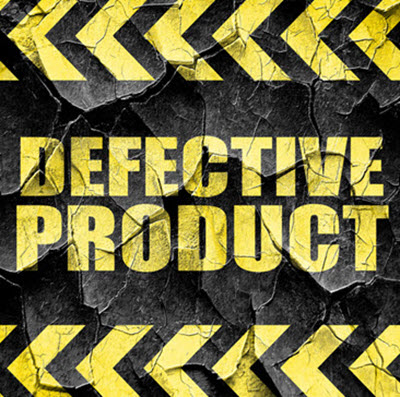The National Motor Vehicle Crash Causation Survey, and the National Highway Traffic Safety Administration (NHTSA) report that over 44,000 accidents happen every year due to manufacturing defects in automobiles. While some automobile manufacturers will issue recall notices, many times defective parts and components are not discovered quickly enough to prevent accidents.
Automobile Defects
Automobile parts and components are regulated by standards established by the NHTSA under the Federal Motor Vehicle Safety Standards. Any part or component of an automobile that fails to meet an established standard in the industry, or fails any kind of testing can be recalled by the NHTSA. Some of the typical recalls of automotive parts and components can include the following:
- Deployment of airbags (accidental or intentional)
- Accelerators that break or stick
- Loss of light
- Fires from electrical systems
- Wheels that are broken or cracked
- Steering components that fail, causing loss of control
- Fires from fuel system component failures
- Windshield wiper failures
- Failure of seatbacks or seats
- Any other automotive part or component that breaks, separates, falls apart, or malfunctions in any way
With hundreds of parts and components in automobiles, many vehicles were distributed, marketed and sold with defects that are yet unnoticed. Whether detected or not, these defects can cause injuries or death.
Accidents Due To Automotive Defects
There are two types of accidents that result from automotive defects.
- Cause Of Accident. Accidents are often caused as a direct result of the automotive defect. Whether it is a part or component that malfunctions, these accidents are caused due to the automotive defect. Some examples can include the failure of brakes, unnecessary airbag deployment, steering wheel failures, acceleration pedal errors, or blown out tires.
- Cause Of More Severe Accident. In these cases, the defective part or component does not directly cause the automobile accident however, it makes the accident much more serious or severe. For example, if airbags fail to deploy, the injuries suffered by passengers will be more serious than if they had deployed. The failure of airbags to deploy did not cause the automobile accident, however, it would make the injuries related to the accident more catastrophic.
Manufacturer Liability
Manufacturers are under “strict liability” regulations and laws, which means that as long as it is proven that the automotive defect existed, the manufacturer will be held liable and responsible. Manufacturers of automotive parts and components have a duty to ensure that the products they place in the stream of commerce are safe. Therefore, for legal purposes, if you can prove that the manufacturing defect existed in your automobile, and you were in a car accident, you may have the right to receive compensation for any injuries you suffered, including medical expenses, property damage, lost wages, and pain and suffering.
Let Us Help You with Your Case
If a manufacturing defect caused an automobile accident in which you were injured, you may have the right to compensation for your injuries. Schedule a free initial consultation with the experienced car accident attorneys at the O’Donnell Law Offices serving clients in Kingston, Wilkes-Barre, Hazleton and Pittston. There is no fee or costs until we win your case.
https://www.odonnell-law.com/2020/01/03/post-traumatic-stress-syndrome-after-a-car-accident/

